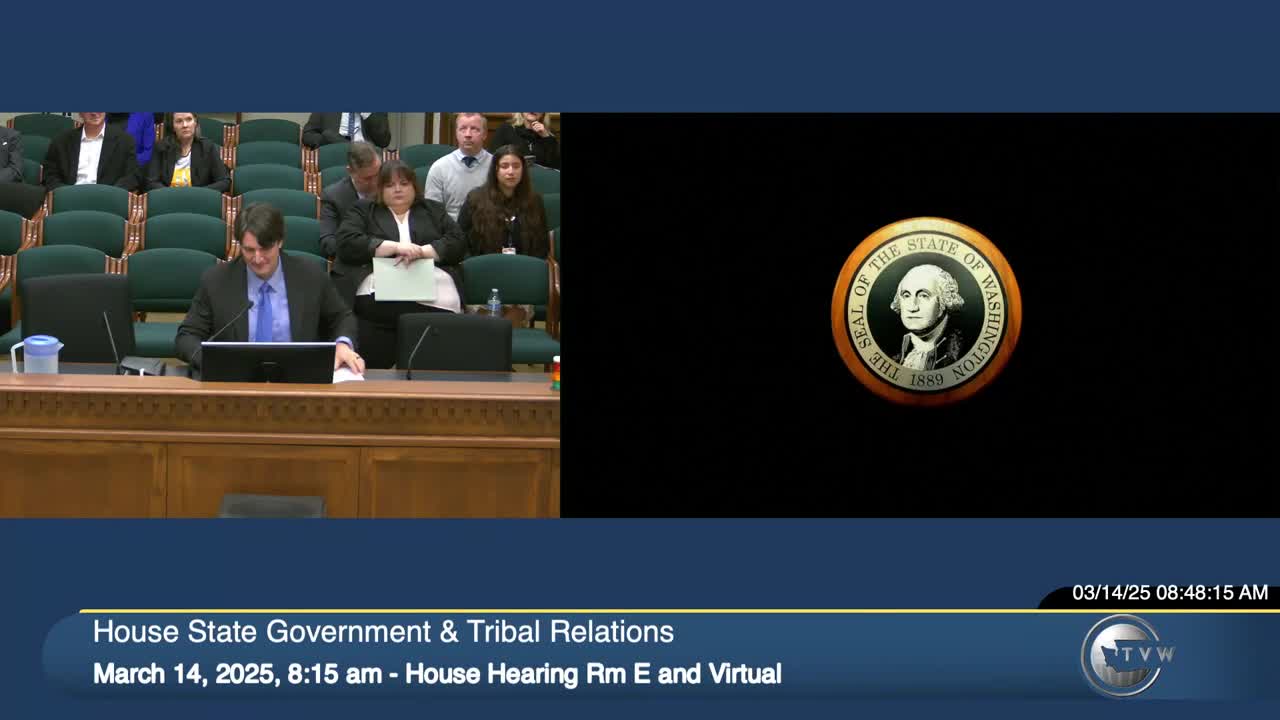Secretary of State warns federal cuts to ISACs, CISA staffing create ‘‘uncertainty and risk’’ for Washington elections
Get AI-powered insights, summaries, and transcripts
Subscribe
Summary
At a Feb. 14 briefing to the State Government & Tribal Relations Committee, Secretary of State Steve Hobbs and Kylie Zabel, director of the Information Security and Response Division, warned that recent federal actions have reduced election-security support and created uncertainty for state and local election offices.
At a Feb. 14 briefing to the State Government & Tribal Relations Committee, Secretary of State Steve Hobbs and Kylie Zabel, director of the Information Security and Response Division, warned that recent federal actions have reduced election-security support and created uncertainty for state and local election offices.
Hobbs described a pattern of foreign campaigns and cyber actors targeting U.S. election systems and said federal intelligence sharing and technical assistance have been critical partners. "Elections are the foundation of our democracy," Hobbs said, urging a whole-of-society approach to defend them. He told lawmakers the federal government once alerted Washington to Russian IP addresses receiving state data and that federal notice allowed the state to respond quickly to a Clark County cyber incident.
Zabel summarized a timeline of federal actions: on Feb. 7 several CISA personnel were placed on administrative leave, which interrupted unclassified briefings and regional support; on Feb. 14 funding for the Elections Infrastructure ISAC was terminated; and on March 6 the Department of Homeland Security completed an internal review but declined to make the review public. DHS subsequently announced a $10 million cut to a cooperative agreement with the Center for Internet Security, representing approximately one-third of a $27 million program budget.
The cuts and staffing moves have already led to cancelled briefings and diminished access to CISA security advisors and regional supports, Zabel said. Core MSI-ISAC services currently expected to continue include ALBERT intrusion-detection sensors, malicious-domain blocking and reporting, endpoint detection and response (EDR), the NCSR self-assessment and the Security Operations Center, she said — but CIS has terminated core EI-ISAC programming and stakeholder engagement and is still evaluating next steps.
Zabel said the state office has estimated that replacing the services currently acquired through MS-ISAC membership could cost at least three times the amount Washington now pays. She also warned that many counties — including 15 identified as cyber-underserved — receive services at reduced or no cost through the ISAC structure and could be severely affected if services are eliminated. The office provides county grants of up to $80,000 per county per fiscal year for physical and cyber security improvements and has provided about $3.4 million to counties in the last two years, approaching $4.5 million by the end of the fiscal year.
Committee members asked whether the federal changes were intended to streamline services rather than eliminate them, and whether the changes raised the risk of opportunistic attacks. Hobbs and Zabel said the immediate operational impact was uncertain, but they expressed concern that adversaries do not pause while the U.S. government reconfigures support.
Both officials urged continued federal engagement and said the office will pursue contingency options and further discussions with the congressional delegation. Zabel said the earliest the state might see substantial changes in service availability is Oct. 1, tied to the federal fiscal year, but she cautioned that uncertainty remains and officials are monitoring developments daily.
